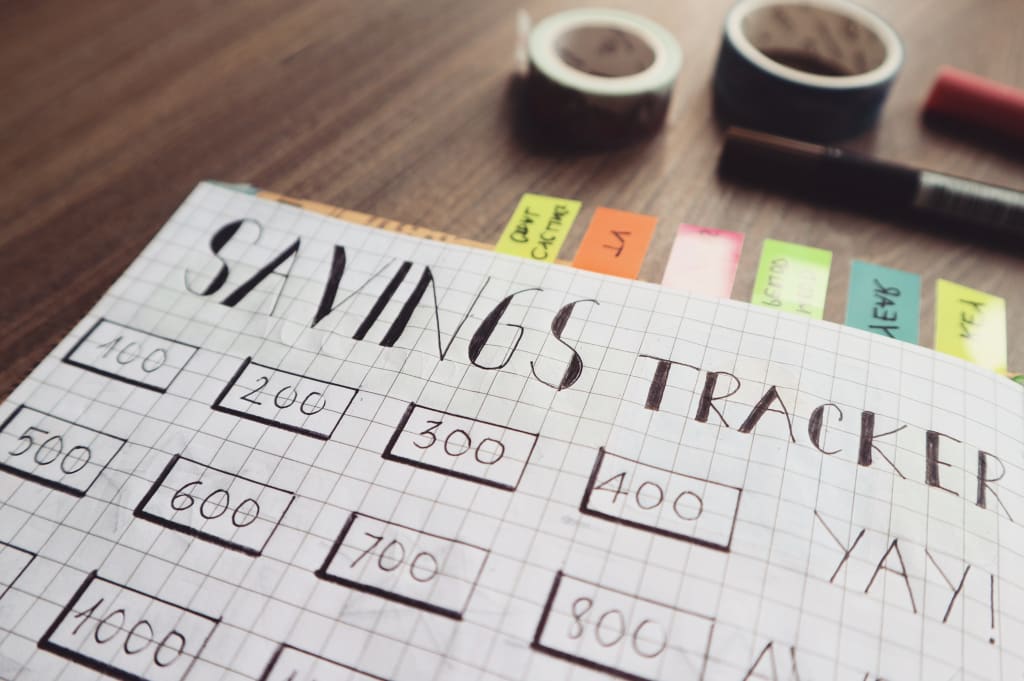I Read “Rich Dad, Poor Dad” and It Transformed How I View Finance
Even poorly written books can make an impact

I’m not going to lie.
When I opened Rich Dad, Poor Dad and got to reading, I was struck by how repetitive and quite poorly written the book is. I even considered ditching it, thinking to myself, “How can there be such hype around this book?”
Well, here’s why — Rich Dad, Poor Dad by Robert T. Kiyosaki may not be a piece of art when it comes to writing, but it sure as hell is a goldmine of information when it comes to personal finance.
If you’re already an experienced investor or an accounting student, you probably won’t get much out of the book. If you’re a complete finance newbie like me, though, Rich Dad, Poor Dad can literally transform how you view money, wealth, and freedom.
And if that’s not worth getting through the repetitive text for, I don’t know what is.
“There are rules of money that the rich play by, and there are the rules that the other 95 percent of the population plays by,” says Robert’s friend’s father who is referred to as “rich dad” throughout the text. “And the 95 percent learns those rules at home and in school.”
When I was growing up, I didn’t know what investing was. I didn’t understand the difference between liabilities and assets, and I definitely didn’t have a clue how important your mindset was when it came to money.
Rich Dad, Poor Dad opened up my financial world to such an extent that all I could do was gape with my mouth open as I flipped through the pages.
Here are my 3 key takeaways.
Make Money Work for You
Money equals labor.
Right?
Well, depends on how you look at it. I was raised to think that the only way to earn an income is to actively work for a specific amount of hours. The more hours you work, the more money you might have.
And if you study well, your hours will be rated better! Instead of earning the minimum wage, you could be looking at a much nicer salaried income.
(…well, except for when you become a college graduate and struggle to find a job in your field for years. But that’s another story.)
I heard of terms like “investing” and “stocks” from time to time, but these words were like air to me — invisible and easy to forget about.
Rich Dad, Poor Dad opened my eyes to how vital investing is for building wealth. When speaking of retirement and investing, Robert says:
Retirement does not mean not working. To my wife and me, it means that barring unforeseen cataclysmic changes, we can work or not work, and our wealth grows automatically, staying way ahead of inflation.
I guess it means freedom. The assets are large enough to grow by themselves. It’s like planting a tree. You water it for years and then one day it doesn’t need you anymore. Its roots have gone down deep enough. Then, the tree provides shade for your enjoyment.
What?! You can actually make money grow without putting any active effort in?
My working-class brain couldn’t cope.
When you invest in a reliable stock index, such as S&P 500, and when you keep adding money for decades without taking anything out… you let compounding do its work.
The results are phenomenal. You no longer need solely active labor to provide you with a source of income — your money makes more of itself without any need for your input whatsoever.
It’s like magic.
You can literally make money work for you.
Prioritize Assets over Liabilities
The first time I saw the terms “assets” and “liabilities,” I thought:
“Huh?”
I got overwhelmed by the fear of complex accounting just reading the words.
In reality, assets and liabilities aren’t that hard to understand. Robert makes a great job of describing them in a simple way that’s easy to grasp:
“An asset is something that puts money in my pocket. A liability is something that takes money out of my pocket. This is really all you need to know. If you want to be rich, simply spend your life buying assets.”
When you buy a house that’s likely to appreciate in value over the years, it’s an asset.
Well, unless your mortgage payment is too high to make the purchase worth it. Then it’s a liability.
Here are some examples of assets:
- stocks (what you probably think of when you read about investing)
- businesses that don’t need you to be present (someone manages them for you)
- royalties (like the 2 dollars you get from a Vocal article you wrote 2 years ago — pretty cool!)
- income-generating real estate
Here are some examples of liabilities:
- your car (cars tend to depreciate in value)
- mortgage
- student loan
- rent
If you have the means to do so, you should always focus on investing money into assets because they’re bound to give you much more money in return.
Liabilities, on the other hand, bite your finger off and then demand a whole hand.
Corporations Are the Secret of the Rich
According to Robert, the rich are rich because they know how to navigate 4 areas of life:
- accounting
- investing
- understanding markets
- the law
The last point is vital. The rich apparently know the law very well, which is why they tend to pay less tax.
Creating a corporation seems to be a popular way to decrease the amount of tax you owe to the government:
“Employees earn and get taxed and they try to live on what is left. A corporation earns, spends everything it can, and is taxed on anything that is left. It’s one of the biggest legal tax loopholes that the rich use. They’re easy to set up and are not expensive if you own investments that are producing good cash flow.
For example, by owning your own corporation — vacations are board meetings in Hawaii. Car payments, insurance, repairs are company expenses. Health club membership is a company expense. Most restaurant meals are partial expenses.”
Now, this whole corporation thing kind of flies over my head, I’m not going to lie. I need more coffee to understand the specifics of it. Not to mention the moral questions at hand.
It’s still super interesting to get to know that there even is such a possibility. Especially since taxes are so high in many countries.
Final Thoughts
In his book, Robert often refers to “the rat race” that you need to escape from if you want to achieve financial freedom.
The rat race is what you’re taking part in when you buy a lot of liabilities, not enough assets, and then wholly rely on one source of income just to live paycheck to paycheck.
For most of my life, my parents didn’t have any emergency fund. They did take out a loan on a car, a dishwasher, a washing machine, and their apartment, though.
They never invested. Weren’t taught how to. Didn’t know there even was such an option. Instead of investing, they bought lottery tickets a few times a month and hoped for a miracle.
They usually spent around one-half of their income just on liabilities. They used the rest to get by.
Month after month after month.
While I’m still very new to the complex world of finance, I know one thing already — the way you use your money determines your freedom in life.
And I strive to be free. Do you?
About the Creator
Reader insights
Outstanding
Excellent work. Looking forward to reading more!
Top insights
On-point and relevant
Writing reflected the title & theme
Easy to read and follow
Well-structured & engaging content
Expert insights and opinions
Arguments were carefully researched and presented
Eye opening
Niche topic & fresh perspectives
Compelling and original writing
Creative use of language & vocab
Heartfelt and relatable
The story invoked strong personal emotions
Excellent storytelling
Original narrative & well developed characters
Masterful proofreading
Zero grammar & spelling mistakes







Comments (12)
Rich Dad Poor Dad is not well written (I echo that sentiment); yet his cashflow quadrant sticks in my head. Just because you are retired from working, does not mean that you stop working altogether. That is correct. You should play cashflow 101 if you haven't already. Life changing stuff.
The book has been around for quite some time now and it is interesting to see, how many people are still discovering it after 26 years! When you are armed with information, it helps you in so many different facets of your life. I'm glad to hear you are on a learning up-curve and will gain from the insights within this book. You may appreciate this story as well: https://vocal.media/lifehack/8-proven-ways-to-make-money Thanks for your story.
I also read that book. It is really a good book.
Well written.
very cool
how many rental properties do you have now??
I should read this book. Thank you!
[url=https://couponnat.com/store/citrusstv//]كود خصم سيتروس[/url]
The principles in this book are a great start to learn, but there's definitely more research and learning needed for the average person (without a finance background) in order to put them into practice effectively.
I didn't read the book, but I heard about it. I am really good with my finance and how I spend my money. I don't invest, but I am not in debt. I can pay my bills on time, eat what I want when I want it, and still don't go broke. Lol, I Love the way you understand and explain this book.
MyNulled.in - Download latest Php Application , Scripts and Tools Nulle for free <a href="https://mynulled.in/php-scripts/">PHP Scripts Nulled </a>
Agreed! Well worth the read and certainly can transform the way you think about finance and business. Good review!